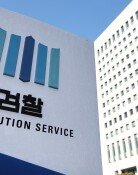Culture and Tourism Committee Assails KBC 2004 Fund Managing
Culture and Tourism Committee Assails KBC 2004 Fund Managing
Posted August. 16, 2005 03:09,
It has been discovered that the Korean Broadcasting Commission (KBC) favored an exorbitant sum of money last year to certain non-government organizations under the pretense of broadcasting monitoring. Accusations of negligent operations of broadcasting development funds have arisen also, such as the allocation of excessive grants made to highly independent television networks.
According to the recently composed 2004 Fiscal Year KBC Settlement Examination Report that the National Assemblys Culture and Tourism Committee announced on August 15, the KBC funded a total of 801 million won last year to 43 NGOs for viewers organization activity purposes such as broadcasting monitoring. It was revealed that the Citizens Coalition for Democratic Media (CCDM) especially received a hefty amount of 98 million won, the largest proportion of the 43 organizations.
In response, the Culture and Tourism Committee report chided, Fifty-five enterprise categories for 43 organizations were supported, but we believe it was inappropriate for one certain organization to receive grants of 98 million won over eight categories, and pointed out, It is necessary to nullify the biased funding of a particular group.
The report also observed that the RTV, a foundation which was founded to directly produce or air programs created by viewers or citizens participation, was given 1.8 billion won by the KBC, but only half (900 episodes) of the programs were accessible to the public.
The report asserted that although the EBS made massive profits last year from fees, ads, and business income to record a surplus of 7.3 billion won above the expected budget (10.6 billion won) for a closing entry surplus of 17.9 billion won, the KBC funded 17 billion won again.
It reprimanded extremely poor enterprise performance, as in the case of the KBC supporting 4.7 billion won to Arirang TV for the English FM Radio Broadcast aired in Jeju Island only to find that tuning in was impossible even on the freeways that foreigners use often. The funds that the KBC supplied to Gugakfm Broadcasting were also ineffectual due to the only listener regions being Seoul and limited areas of Jeonbuk.
Meanwhile, more criticisms followed for the problems apparent in the balanced development of media, saying, For the public access production funds, KBS Open Channel received 7,550,000 won per episode, but System Operator (SO)s provincial public channels were given a mere 1/25 of that amount, 300,000 won.
In-Jik Cho cij1999@donga.com



![“한동훈, 정치생명 걸고 무소속 출마해 평가받는 것 고려할만”[정치를 부탁해]](https://dimg.donga.com/c/138/175/90/1/wps/NEWS/IMAGE/2026/01/19/133186982.1.jpg)



